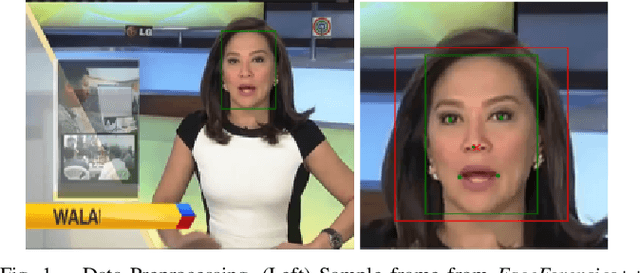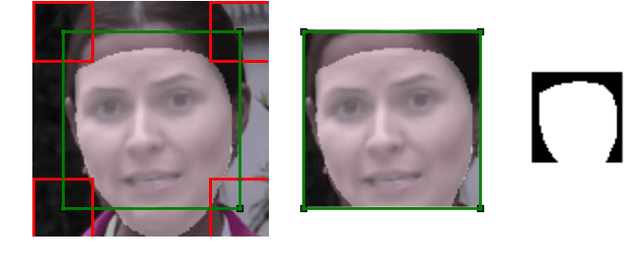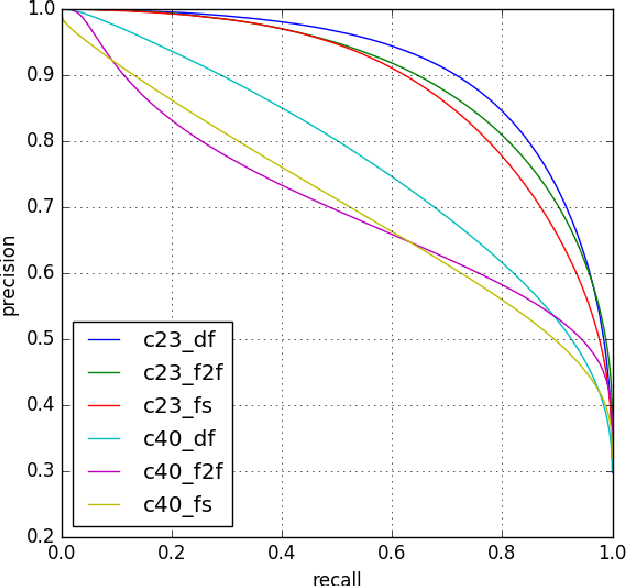Using Fully Convolutional Neural Networks to detect manipulated images in videos
Paper and Code
Nov 29, 2019



We propose a compact architecture based on fully convolutional neural networks (FCN) to detect manipulated images of human faces. In contrast to existing FCN architectures for classification, here the final layer feature map exhibits large spatial dimensions with non-global receptive field. The final layer features are spatially averaged using global average pooling (GAP) to provide more robust features. We leverage the structure of the FCN to derive a straightforward way for joint classification and forgery localization training and show that the network's classification performance improves significantly by the addition of a pixelwise classification loss. The trained networks achieve state of the art results in binary classification in the {\it FaceForensics++} dataset and competitive performance in other tasks using a significantly reduced number of parameters and small resolution input images. Additionally, we examine how well the proposed architecture can detect fully generated images using faces from the recently proposed PGAN and StyleGAN methods. We show that this task is easier to learn than detecting manipulated images and that for both cases there is only a small drop of performance when the network is trained using more than one manipulation technique in the training data.
 Add to Chrome
Add to Chrome Add to Firefox
Add to Firefox Add to Edge
Add to Edge